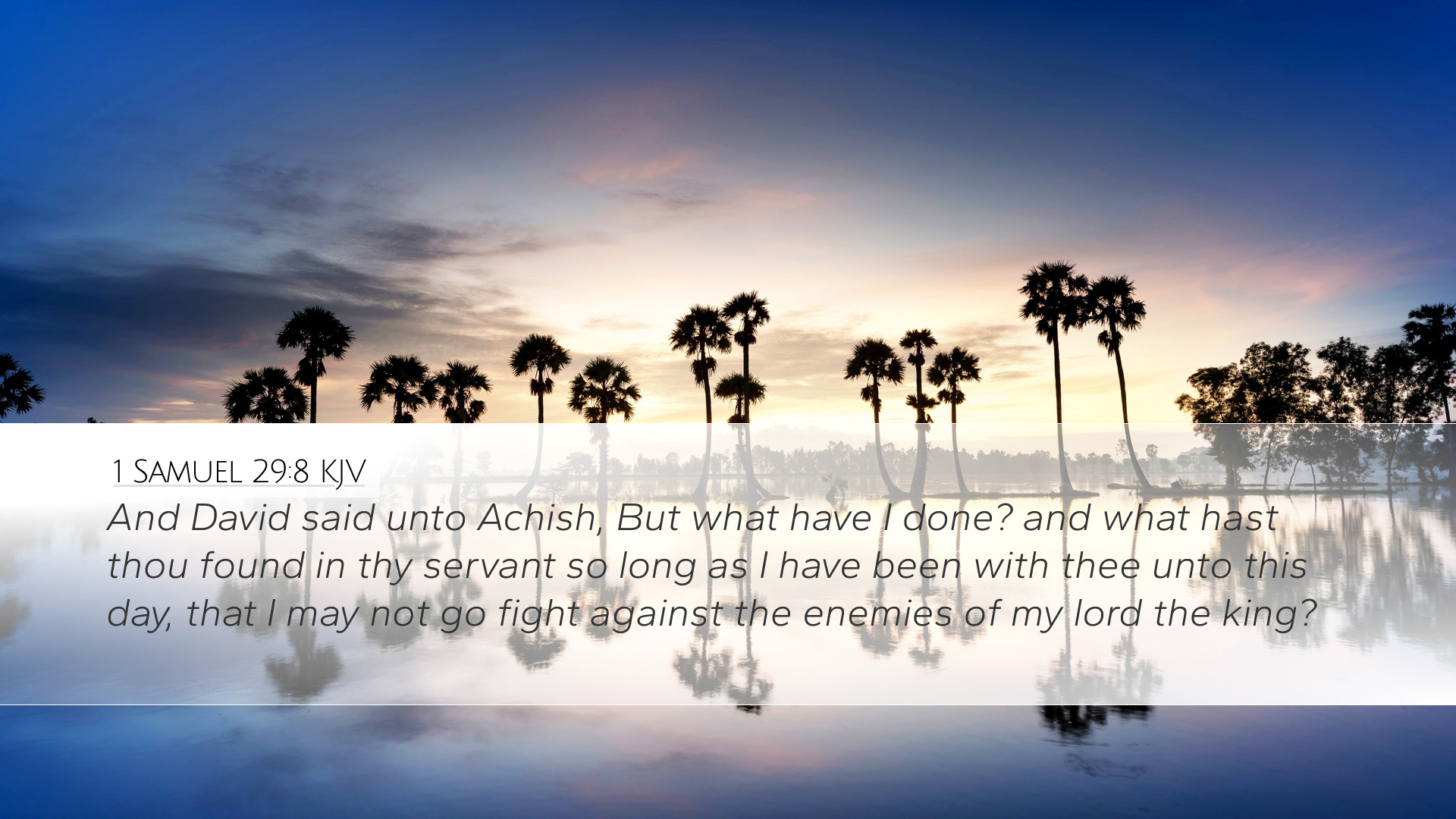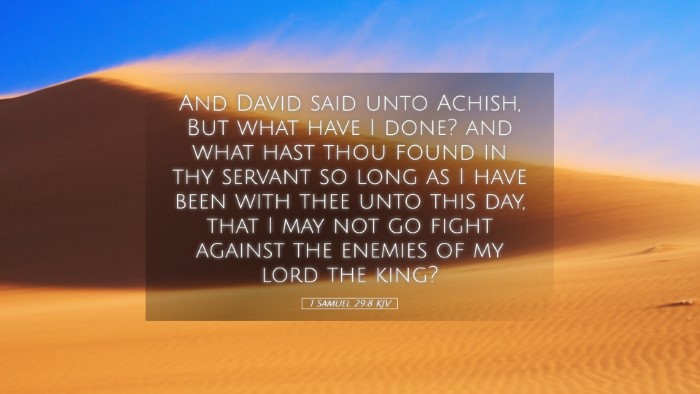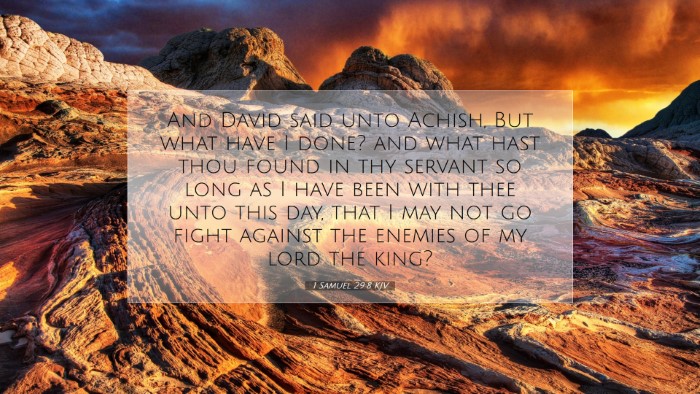Commentary on 1 Samuel 29:8
Verse Reference: 1 Samuel 29:8 - "And David said unto Achish, But what have I done? And what hast thou found in thy servant so long as I have been with thee unto this day, that I may not go fight against the enemies of my lord the king?"
Contextual Overview
The passage occurs during David's time in Philistine territory, where he sought refuge from King Saul. David had been living among the Philistines to escape Saul's relentless pursuit. Achish, the king of Gath, had become an ally of David, yet the situation was precarious as David's loyalty was questioned when the Philistine lords objected to him joining them in battle against Israel.
Matthew Henry's Insights
Matthew Henry notes that David's question illustrates his confusion and dismay regarding the suspicion cast upon him by Achish. He draws attention to the duality of loyalty; while David had ingratiated himself with the Philistines, he was still perceived with distrust by the lords of the Philistines. Henry points out that it was David's design to blend into the culture of his surroundings to survive, which raises questions about the moral implications of his actions.
- David’s Integrity: Henry emphasizes David's character, as he posed legitimate questions concerning his past conduct as a servant to Achish. David’s consistent good service is a testament to his integrity.
- Moral Dilemma: The commentary highlights David's moral struggle between his Israeli identity and the necessity of navigating life among the Philistines.
Albert Barnes' Commentary
Albert Barnes expands on this notion of David's appeal to Achish by presenting it as a method to assert his loyalty and demonstrate that he posed no threat to the Philistines. He underscores David's rhetorical question as a plea, implying that his actions should reflect his loyalty rather than betrayal.
- David’s Rhetorical Query: Barnes suggests that David's question was a strategic move to affirm his position while subtly condemning the suspicion against him.
- Philistine Political Dynamics: The unease among the Philistine lords points to the complex political landscape, where trust was tenuous and alliances precarious.
Adam Clarke's Reflections
Adam Clarke introduces theological and practical implications of this scenario. He reflects on the providence of God allowing David to experience such distressing circumstances, indicating that God was ultimately in control, preparing David for his future kingship over Israel.
- Providence in Peril: Clarke emphasizes the notion that God often places His people in difficult situations for a greater purpose. David's perilous moment in the Philistine camp was pivotal for his eventual ascension to the throne.
- Leadership and Character: This commentary stresses that leaders are often tried in the crucible of adversity. David's fear of losing his moral standing amongst the Philistines reveals the importance of reputation in leadership.
Theological Implications
This verse and its surrounding context highlight critical theological themes such as:
- The Nature of Loyalty: David’s loyalty was multifaceted; he had allegiances to both the Philistines and his people, raising questions of how allegiance is navigated in times of conflict.
- Divine Providence: David's experience illustrates God’s hand in orchestrating events for His purposes, even when circumstances seem dire or unsalvageable.
Practical Applications for Today
This passage nonetheless resonates with Christians today by illuminating the complexities of moral integrity in challenging situations. The tension David faced can be correlated to the modern believer's struggle to maintain faithfulness amidst social pressures and ethical dilemmas.
- Maintaining Integrity: Just as David sought to maintain his integrity and loyalty, believers are called to navigate their circumstances with faithfulness to God amidst worldly challenges.
- God's Sovereignty: The assurance that God is at work in the events of our lives echoes through David's reflection. Believers are encouraged to trust in God's broader plan.
Conclusion
In summary, 1 Samuel 29:8 provides a rich tapestry of themes concerning loyalty, moral integrity, divine providence, and the challenges faced by God’s chosen leaders. As such, this verse stands not only as a moment in history but also as a profound teaching about the complexities of faith, loyalty, and the often-murky waters of ethical decision-making.


